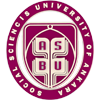Ethical Principles and Publication Policy
WLS is an international refereed journal in which high quality original scientific articles, article translations, book promotions and reviews in the fields of language, literature, history of literature, culture, language education, applied linguistics are published in line with the ethical principles stated below. The articles submitted to our journal are published electronically with free access, following the evaluation of double-blind review. The following ethical principles and rules have been prepared in accordance with the Higher Education Institutions Scientific Research and Publication Ethics Directive and the Committee on Publication Ethics-COPE Publication Ethics Committee Directive.
Ethical Responsibilities of Authors
- The subjects of the articles to be sent to our journal must be within the scope of specified fields.
- Articles to be sent to our journal must be original, not previously published elsewhere, or not in the process of being evaluated in another journal for publication.
- All sources used in the article should be properly indicated in the references; copyright materials must be used in accordance with copy laws and agreements and the required permissions.
- In the Copyright Agreement Form, the name order in the articles with two or more authors should be officially stated.
- If the authors detect an error in their article later, they should immediately inform the editorial board and should cooperate in the the correction or withdrawal process. The entire responsibility of the published article belongs to the authors. No opinion and thought in the article can be related to the journal, editors, or referees.
- The similarity rate of all studies accepted by our journal is checked through the iThenticate plagiarism detection program. The matches in the plagiarism checking process are examined and then a similarity report is created for the article. In accordance with the report, the study may be completely removed from the publication process or the authors may be asked to make corrections regarding certain parts of their work.
- Manuscripts go into the process of double blind evaluation by the editor or one of the assistant editors and at least two referees. Plagiarism, forgery, distortion, duplication, slicing publication (also known as Salami Slicing publication), unfair authorship, violation of copyrights and concealing conflict of interest are considered unethical behaviors.
Ethical Responsibilities of Reviewers
- The double blind method is used in the evaluation of the studies submitted to our journal. Thus, the identity information of the referees and authors is kept confidential in order to ensure a neutral, objective and independent evaluation process.
- The articles are sent to the referees for evaluation through the journal management system established through the web page of the Faculty of Foreign Languages https://ydf.asbu.edu.tr/.
- Referees are required to referee the work related to their area of expertise solely.
- The referees should state their opinions about the article they reviewed, their decisions on whether the study is publishable or not, and should not indicate their names in order not to harm the double-blind evaluation process.
- Referees are responsible for evaluating the articles scientifically in a neutral and objective manner.
- Referees are expected to complete their evaluations within the time given to them and to act in accordance with the ethical principles of our journal.
Ethical Duties and Responsibilities of Editors
• Editors organize double-blind peer review process fairly and objectively by evaluating the articles submitted to the journal in line with scientific and ethical principles.
• They ensure that all information and data regarding the articles submitted to the journal are kept confidential until the completetion of the article publishing process.
• They are responsible for the total quality of all content and publications in the journal. They can publish an error page or make corrections when necessary.
• Editors do not allow any conflict of interest between authors and reviewers. They are fully authorized to appoint referees and are responsible for making the final decision on the articles to be published in the journal.
